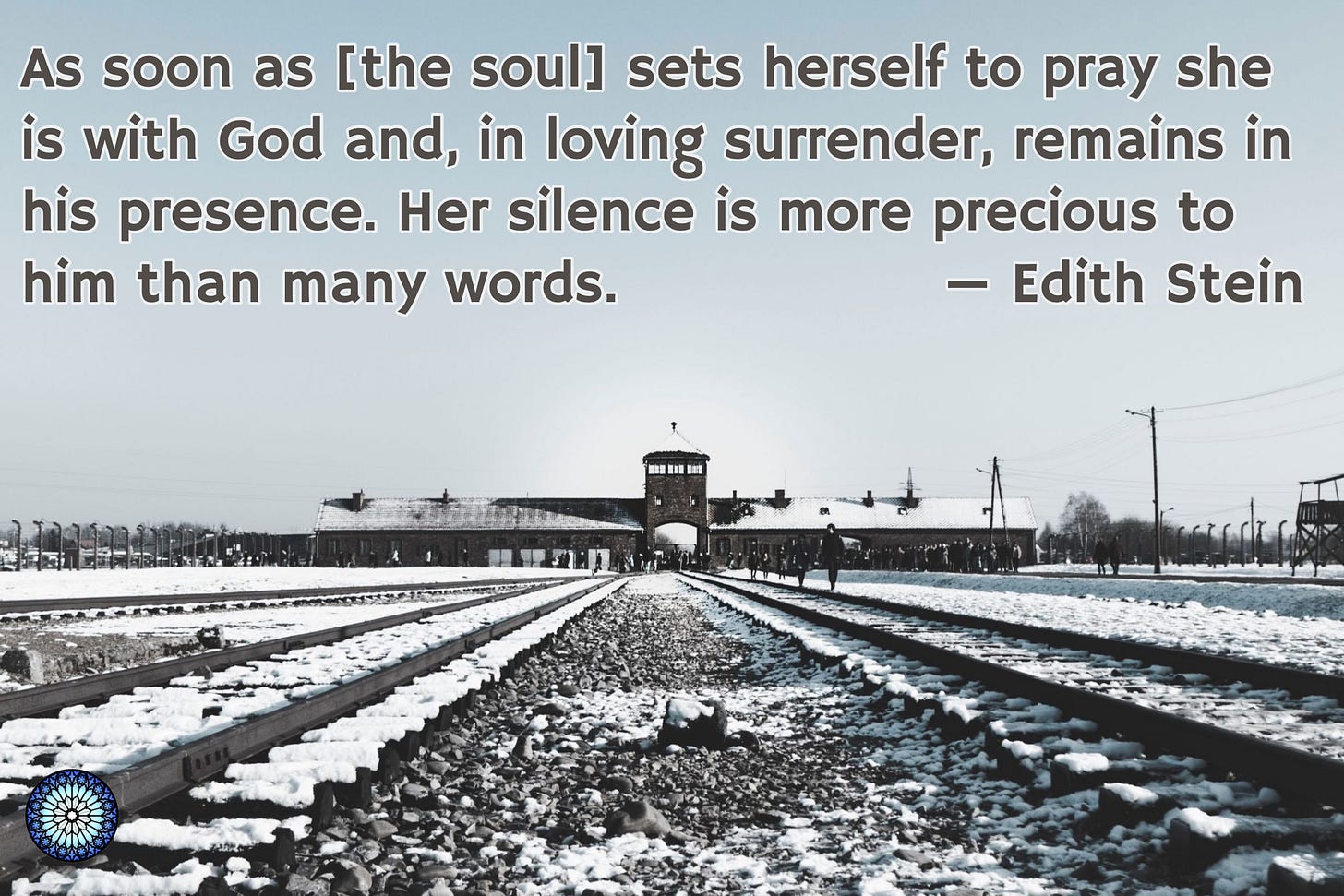A New Awakening and an Increase in Love
When silence is more precious than many words.
Teresa Benedicta of the Cross was the religious name of Edith Stein (1891-1942), a German Jewish philosopher who converted to Catholicism, became a Carmelite nun, only to eventually die in the Auschwitz Nazi death camp, two months before her 51st birthday. She left behind an impressive body of philosophical writing, including several books that were exp…




